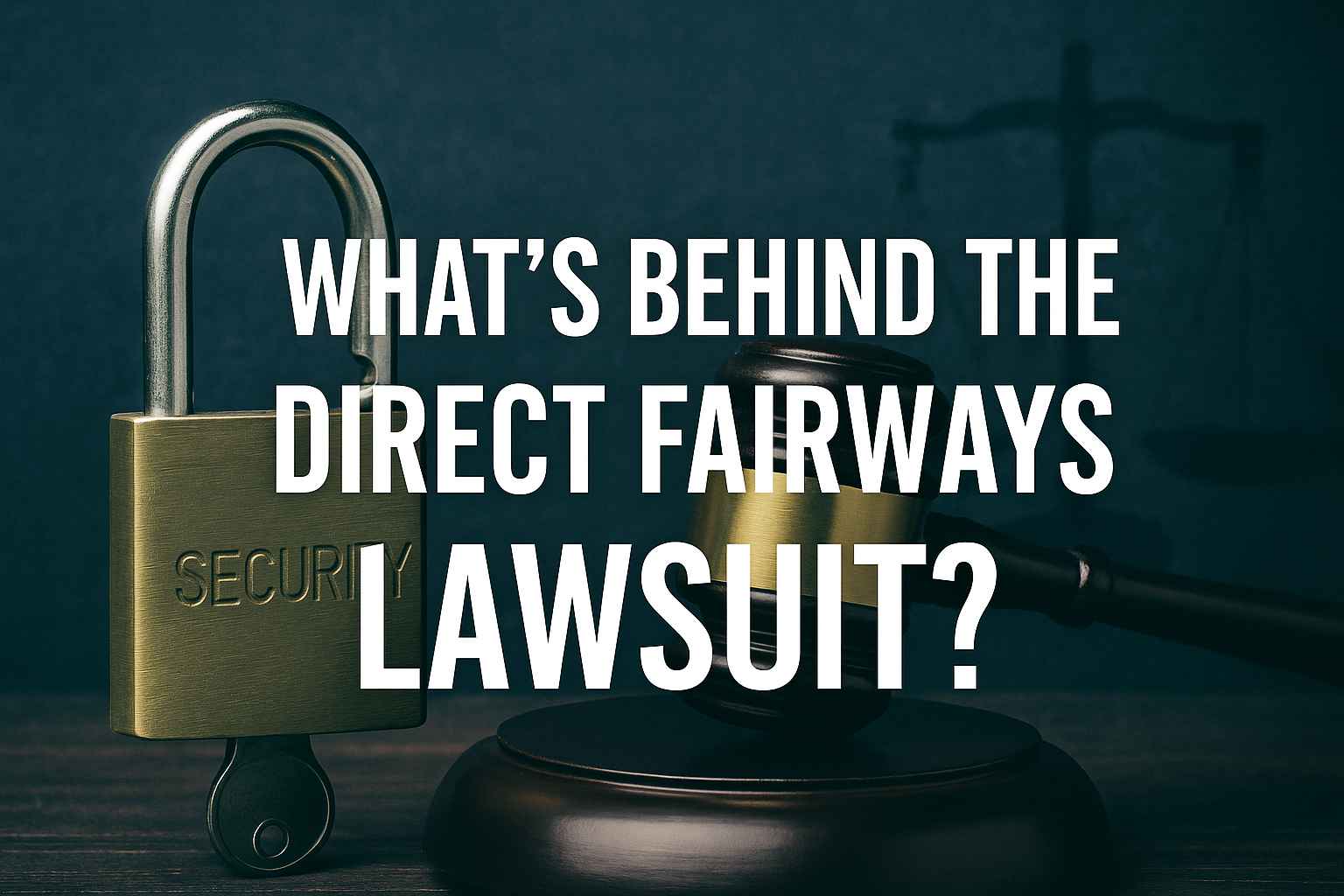What’s Behind the Direct Fairways Lawsuit? Find Out Here
The direct fairways lawsuit has sparked significant attention in the marketing and golf industries. Business owners, former clients, and legal analysts are watching closely as details continue to surface. At the heart of the issue is a growing debate over marketing ethics, transparency, and accountability in niche service sectors. The direct fairways lawsuit isn’t just about one company. It’s about broader industry practices that may be overdue for reform.
Who Is Direct Fairways?
Direct Fairways is a marketing company that specializes in promotional materials for golf courses. Their services typically include printed course guides that feature advertisements from local businesses. They offer to help golf courses generate revenue while connecting advertisers with a unique audience. For years, this business model worked well and filled a niche. But the direct fairways lawsuit now challenges the legitimacy and transparency of how those services were sold.
How the Direct Fairways Lawsuit Started
The controversy began when numerous clients began reporting billing discrepancies, unfulfilled promises, and aggressive sales tactics. Some of these clients later became plaintiffs in the direct fairways lawsuit. Complaints ranged from being charged for services that were never delivered to being locked into unclear contractual obligations. These accounts raised red flags and led to formal legal action.
The Nature of the Claims
The direct fairways lawsuit includes several key allegations. Many of the claims involve misrepresentation. Businesses claim they were told one thing by sales reps and experienced something entirely different once they signed up. Some said they were promised premium placement in golf guides or widespread distribution, only to find limited reach and poor follow-through. Others alleged that repeated charges occurred even after requesting cancellations.
Direct Fairways’ Response
In response to the direct fairways lawsuit, the company has pushed back against the allegations. Representatives maintain that their practices are legitimate and that the majority of clients are satisfied with their services. They argue that misunderstandings may have occurred but deny systematic wrongdoing. Still, the persistence and volume of complaints have kept the lawsuit in the public spotlight.
Why the Case Matters
The direct fairways lawsuit is more than a company dispute. It raises serious questions about ethical practices in outsourced marketing. Small businesses often rely on third-party providers to extend their brand reach. When those services fall short, the consequences can be both financial and reputational. This case underscores the importance of transparency, especially in contract-based industries.
The Legal Implications
Legal experts are paying close attention to how the direct fairways lawsuit unfolds. Depending on the verdict, this case could set a precedent for how similar disputes are handled in the future. If the plaintiffs succeed, other marketing firms may face greater scrutiny. More robust regulations and clearer service standards could emerge from the fallout.
Current Status of the Direct Fairways Lawsuit
As of now, the direct fairways lawsuit remains active in court. Legal teams are gathering evidence, and testimonies continue to surface. No official ruling has been made, but public interest is growing. Each update draws more attention from affected clients and industry observers. For now, Direct Fairways must navigate both a legal battle and a reputational crisis.
Customer Impact
For many customers, the direct fairways lawsuit validates their concerns. It’s not just about money lost but about trust betrayed. Small businesses operate on tight margins. A poor investment in marketing can hit hard. Some clients involved in the case claim that their experience with Direct Fairways set them back months in their promotional efforts.
Online Sentiment and Public Reaction
Online forums and consumer advocacy sites have played a major role in bringing the direct fairways lawsuit to light. From the Better Business Bureau to Reddit threads and Trustpilot reviews, voices of dissatisfaction have found platforms to be heard. This digital exposure has increased pressure on the company to respond publicly and transparently.
Impacts on Similar Marketing Firms
The direct fairways lawsuit has also sent ripples through the marketing community. Companies with similar models are reviewing their sales tactics and client communication protocols. Some are even updating contract language to avoid misunderstandings. Whether they’re watching with concern or taking proactive steps, the industry is feeling the effects.
How Businesses Can Protect Themselves
This case is a reminder to vet all marketing vendors thoroughly. Businesses should request detailed service outlines and make sure contracts are clear. When something sounds too good to be true, it usually is. The direct fairways lawsuit offers lessons in diligence and the cost of overlooking red flags.
A Cautionary Tale
Regardless of the final ruling, the direct fairways lawsuit has already changed the landscape. It’s a case study in how overlooked issues can escalate into public and legal crises. It shows that even niche industries must operate transparently and responsibly to avoid litigation and reputational damage.
Looking Ahead
The outcome of the direct fairways lawsuit remains uncertain. Whether it ends in a settlement or a court ruling, the effects will last. Direct Fairways may need to rethink its business model and rebuild trust. Clients and competitors alike will be watching to see what comes next. For now, the lawsuit continues to unfold, serving as a mirror to a business model under scrutiny.
Final Thoughts
The direct fairways lawsuit has opened a necessary conversation about ethics in marketing. It’s a wake-up call for both providers and clients to prioritize clarity, honesty, and accountability. What happens next may not only shape Direct Fairways’ future but influence best practices across the board. For businesses navigating third-party marketing relationships, this case offers valuable lessons on due diligence and informed decision-making.







